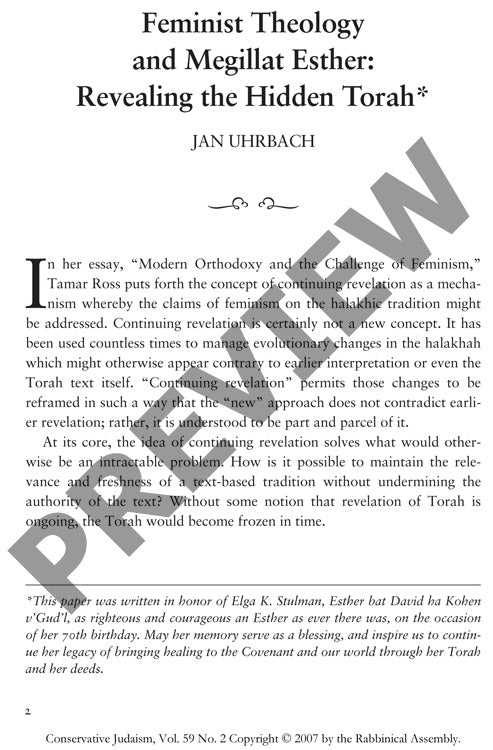Feminist Theology and Megillat Esther Re
Couldn't load pickup availability
A fundamental flaw mars the Sinai covenant: the absence of women's explicit consent and voice in accepting Torah. Through feminist analysis of Megillat Esther, compelling evidence emerges for incorporating women's perspectives into halakhic tradition - not as innovation, but as recovery of concealed divine revelation. Midrashic analysis and close textual reading reveal how rabbinic sources deployed Esther to address the problem of coerced Torah acceptance at Sinai, particularly in Shabbat 88a, by pointing to Esther 9:27 as proof of later voluntary reaffirmation. The symbolic interplay between "Esther" (hiddenness) and "megillah" (revelation) suggests that Megillat Esther represents disclosure of previously hidden Torah. While rabbis used this text to establish their interpretive authority, their resolution remains incomplete without women's consent. Significantly, Esther's "second letter" (Est. 9:29) containing "words of peace and truth" symbolizes that women's voices are essential to fully actualizing the Sinai covenant. This analysis demonstrates that feminist theology serves not to alter tradition but to reveal Torah's concealed wholeness, present since Sinai but awaiting discovery.

More Information
-
Physical Description
-
Publication Information
Published 2007
ISBN
-
Publication Credits
Jan Uhrbach

